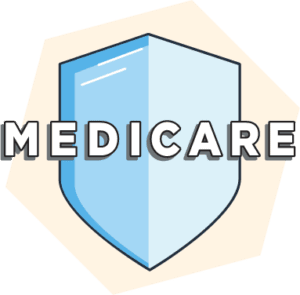In Which States Do You Have to Have Health Insurance?
The states in which you must have health insurance as part of a statewide individual mandate include:
- California
- Massachusetts
- New Jersey
- Rhode Island
- Vermont
- Washington, D.C.
Individual mandates incentivize residents to purchase health insurance if they are not already covered by a government-sponsored or employer-sponsored plan. Under an individual mandate, you may face a tax penalty if you do not have sufficient health insurance coverage. However, these mandate penalties vary by state. In California, for example, the Franchise Tax Board penalizes residents who can afford health insurance but do not have it. The penalty applies by household and may be either a flat rate or a percentage of the household income above a set threshold—whichever is greater.
To avoid a tax penalty, ensure you have a health insurance plan that meets your state’s minimum standards.
Table of Contents
- In Which States Do You Have to Have Health Insurance?
- What Is an Individual Mandate?
- How Do State-Specific Individual Mandates Work?
- Exploring Individual Mandates By State
- How To Avoid the Penalty
- How Will Medicaid Redetermination Affect Individual Mandates?
- Where To Look For Coverage If You’re Uninsured
- Individual Mandates and You
What Is an Individual Mandate?

When the Affordable Care Act (ACA) was signed into law in 2010, it included the individual shared responsibility provision, also known as the federal individual mandate. The individual mandate penalized those who went more than two consecutive months without ACA-compliant health coverage. However, Congress later removed all tax penalties associated with the federal individual mandate, making it effectively irrelevant nationally as of 2019.
After the federal tax penalty was removed, a few states responded with their own individual mandates and penalties, aiming to maintain low numbers of underinsured residents.
How Do State-Specific Individual Mandates Work?
States that mandate health coverage typically use tax penalties to enforce their individual mandates. In most cases, however, only people who can afford health insurance are penalized for not having it.
Why Do People Need Coverage?
Health insurance is necessary for the following reasons:
- It protects you from potentially devastating medical expenses.
- Access to quality healthcare promotes overall health and well-being.
- With an ACA-compliant health plan, most preventative care is free, even if you haven’t met your deductible.
- On average, uninsured people pay twice as much as insured people for medical care, according to HealthCare.gov.
And if you live in a state with an individual mandate, you have yet another reason to get health coverage: It’s the law. Failing to purchase a compliant health plan may result in steep tax penalties.
How Is the Penalty Charged?
In most cases, you must report your healthcare coverage on your state tax return. If your coverage did not meet the guidelines set by your state’s individual mandate, you may pay a fine in the form of a tax penalty. If you qualify for an exemption, you may also report this on your state tax return.
How Much Coverage Does One Need to Avoid the Penalty?
If your state imposes an individual mandate, you need minimum essential coverage (MEC) to satisfy health insurance requirements. MEC plans generally cover the following:

- Emergency health services
- Hospitalization
- Laboratory services
- Mental health and substance use disorder services
- Newborn care
- Outpatient care
- Pediatric care
- Pregnancy and maternity care
- Prescription medications
- Preventative and chronic illness health services
All major medical health insurance meets MEC requirements. You have an MEC plan if you have an ACA-compliant health plan or employer-sponsored health insurance. Government-sponsored health plans like Medicare, Medicaid, and the Children’s Health Insurance Program also fulfill MEC requirements.
Why Do Some States Mandate Coverage?
Individual mandates prevent people from waiting until they know they need health insurance to purchase a plan. If only sick and injured people buy into health insurance coverage, providers may not make enough from plan premiums to cover the costs incurred by people using their insurance benefits. This could lead to higher plan premiums.
That said, individual mandates are politically controversial. Many states do not have them because:
- Critics think individual mandates infringe on people’s individual liberty.
- Health insurance can be expensive and create a financial burden.
- Individual mandates can be difficult to enforce.
Exploring Individual Mandates By State
California, the District of Columbia, Massachusetts, and New Jersey assess tax penalties to uninsured individuals whose incomes exceed specified thresholds. Vermont technically has an individual mandate but does not penalize uninsured residents.
State | Percentage of Residents Uninsured | Penalty Threshold | Form of Penalty | Amount of Penalty | Qualifying Plans |
|---|---|---|---|---|---|
California | 7% | -Individuals: $49,763 -Married couples: $92,100 -Family of 4: $142,000 | Tax penalty | -Adult: $850 -Dependent child: $425 | |
Washington, D.C. | 3.7% | -21 and older: Equal or less than 222% of the federal poverty level -20 and younger: Equal or less than 324% of the federal poverty level | Tax penalty | 2.5% of household income or $695 per adult and $347.50 per child, whichever amount is greater | |
Massachusetts | 2.4% | Individual income less than or equal to 150% of the federal poverty level | Tax penalty | -Income 150-200% FPL: $24/month or $288/year-200-250% FPL: $46/month or $552/year -250-300% FPL: $68/month or $816/year -More than 300% FPL: $183/month or $2,196/year | |
New Jersey | 7.2% | -Household income at or below 138% of the federal poverty line -Lowest cost Bronze-level health plan exceeds 8.05% of household income | Tax penalty | -Individual: $695-$3,661 -Family with household income of $200,000 or less: $2,351-$4,869 -Family, income $200,001-$400,000: $2,351-$10,279 -Family, income $400,001 or more: $2,351-$19,793 | |
Rhode Island | 4.8% | Federal income tax filing threshold -Individual under 65: $12,950 -Individual 65 or older: $14,700 | Tax penalty | 2.5% of modified adjusted gross income exceeding tax-filing threshold, capped at $2,085 | |
Vermont | 3% | No threshold | No penalty | No penalty | N/A |
California
California enacted its individual mandate on Jan. 1, 2020, after eliminating the federal health insurance penalty. If you’re uninsured in California, you may face a tax penalty if you lacked coverage for three or more consecutive months during the tax year and one or more of the following apply:
- Your household income exceeds the state income tax filing threshold.
- You could purchase health coverage for less than 8.27% of your household income.
As of 2023, the tax penalty is a flat amount of $850 per adult and $425 per dependent child, capped at $2,550 per year.
In California, a health plan must cover the following when medically necessary:
- Doctor and hospital services
- Inpatient services
- Outpatient services
- Lab tests
- Diagnostic services
- Preventative and routine healthcare
- Mental healthcare in some serious cases
- Emergency and urgent care
- Rehabilitation therapy
- Home health or nursing care after a hospital stay
- Standing referrals for beneficiaries with AIDS
- Diabetes services
- Clinical trials for cancer treatment
- Reconstructive surgery or prosthetic devices following a mastectomy
- Prosthetic devices following a laryngectomy
- Reconstructive surgery in some situations
- Osteoporosis diagnosis, treatment, and management
- General anesthesia for some dental procedures
California’s health insurance mandate does not apply to healthcare-sharing ministry participants, members of federally recognized Native American tribes, incarcerated people, and people enrolled in health coverage from the Department of Healthcare Services.
Washington, D.C.
The District of Columbia enacted its individual mandate—called the individual responsibility requirement—in 2019. DC’s individual health insurance requirements are modeled after the federal individual mandate, so its coverage requirements reflect the federal MEC definition.

Washington, D.C., applies a tax penalty to uninsured residents who do not have a coverage exemption. The penalty is either $695 per adult and $347.50 per child or 2.5% of the household income—whichever is greater.
The following groups are exempted from this tax penalty:
- Taxpayers 21 and older whose gross income is equal to or less than 222% of the federal poverty line
- Taxpayers 20 and younger whose income equals or is less than 324% of the FPL
- Members of qualifying religious groups
- Participants in healthcare-sharing ministries
- Members of Native American tribes
- Those who lacked coverage for less than three consecutive months
- Incarcerated people
- People not lawfully present in the U.S.
Massachusetts
Massachusetts set the standard for the federal individual mandate when the state enacted its own health insurance mandate in 2006. Residents who do not comply must pay a tax penalty unless their income is equal to or less than 150% of the FPL.
Otherwise, the tax penalty is applied as follows, based on the pricing of ConnectorCare plans (subsidized, private health plans):
- Income equals 150.1%-300% of FPL: Half of the lowest-priced ConnectorCare premium they would have paid
- Income exceeds 300% of FPL: Half of the lowest-priced Bronze premium they would have paid
- Married couples: The sum of each spouse’s individual penalties
New Jersey
New Jersey’s individual mandate was enacted on Jan. 1, 2019, assessing a tax penalty (called a “shared responsibility payment”) to qualifying taxpayers who lacked sufficient health coverage. New Jersey does not openly list its tax penalty formula, but individual taxpayers could pay anywhere from $695 to $3,661 for violating the mandate.
Some New Jersey residents are exempt from shared responsibility payments based on income, group membership, incarceration status, hardship, country of residence, or the length of time they lacked coverage. Income exemptions can be:
- Affordability-based: The premium for the lowest-cost Bronze plan on the Health Insurance Marketplace exceeds 8.05% of household income
- Job-based: The lowest-cost, self-only plan’s annual premium exceeds 8.05% of household income
- Poverty-based: Household income is equal to or less than 138% of the FPL
Other exemptions include members of federally recognized Native American tribes, incarcerated people, people experiencing homelessness, residents living abroad, and people who have been evicted or are facing eviction, to name a few.
Rhode Island
Starting Jan. 1, 2020, Rhode Island implemented a health insurance mandate, subjecting violators to a tax penalty. Exemptions are available based on the following:

- Religion
- Coverage affordability
- Medicaid coverage status
- Rhode Island residency status
- Native American tribe membership
- Incarceration status
- Country of residence
You are subject to Rhode Island’s individual mandate if an employer-sponsored health plan is available to you for 9.86% or less of your household income. The tax not penalty is either 2.5% of your annual household income or $695 per adult and $347.50 per child in your household, whichever amount is larger.
Vermont
Vermont does not penalize residents who lack health insurance coverage, but the state does require taxpayers to report their health insurance coverage status for each month of the year when they file state taxes. By requiring this reporting, the state aims to encourage all residents to purchase health insurance.
How To Avoid the Penalty
Though specifics vary by state, you can generally avoid a tax penalty for violating your state’s individual mandate if at least one of the following applies:
- You qualify for an exemption in your state. Exemptions usually apply to low-income people, members of a recognized tribe or religious sect, or experiencing a qualifying hardship.
- Your lapse in coverage lasts for less than three months. Some states with individual mandates do not apply tax penalties to those who only experienced a short coverage gap, with a threshold of three months.
- You find alternative health coverage. You do not necessarily need employer-sponsored medical insurance for your plan to meet MEC requirements. Plans on the Health Insurance Marketplace also provide MEC. Government-sponsored plans through the Medicare and Medicaid programs satisfy health insurance requirements with individual mandates in most states.
Moreover, if you join a healthcare-sharing ministry, your state might exempt you from coverage requirements.
How Will Medicaid Redetermination Affect Individual Mandates?

Medicaid redetermination occurs when states review Medicaid enrollees to ensure they are still eligible for coverage, as is occurring now with state departments of health reconsidering their breadth of coverage following COVID-19. Therefore, if you have Medicaid and recently experienced an increase in income or another similar life change, you may lose coverage if your state determines that you no longer qualify for Medicaid. You may also be subject to tax penalties if you live in an individual mandate state and do not purchase another qualifying health plan in time.
During the COVID-19 public health emergency, states paused disenrollment from Medicaid based on redetermination. However, as of April 1, 2023, some states have resumed their disenrollment processes. Recent reports suggest that 15 million people will lose Medicaid coverage due to redetermination after the emergency. If this number includes you, you do not have to wait for Open Enrollment to get health insurance after Medicaid disenrollment. You can apply for a Marketplace plan:
- Up to 60 days before your Medicaid coverage ends
- Anytime between losing Medicaid coverage and July 31, 2024
If you wait until you lose Medicaid coverage to apply for a Marketplace plan, you will have 60 days from the date you submit your application to enroll in a new plan.
Where To Look For Coverage If You’re Uninsured
If your state has an individual mandate, obtaining health insurance is the best way to avoid a tax penalty. You have a few options for finding qualifying health coverage.
Health Insurance Marketplace

The Affordable Care Act created the health insurance marketplace, which provides a platform for finding and enrolling in coverage. The federal marketplace is at HealthCare.gov, but your state might run its own marketplace. All marketplace plans meet MEC and, therefore, fulfill the individual mandate.
Marketplace plan premiums vary based on income. Apply for a plan to see if your income qualifies you for out-of-pocket savings or lower premium prices. Further, you can only enroll in a Marketplace plan during Open Enrollment or a special enrollment period.
Medicaid
Medicaid provides government-sponsored health insurance to low-income adults, older adults, people with disabilities, pregnant people, and children. Though the federal government oversees Medicaid, the program’s details and eligibility requirements vary by state.
If you have Medicaid and your state requires health insurance, you can feel confident your plan complies with your state’s individual mandate because Medicaid qualifies as MEC. Additionally, if you are eligible for Medicaid, you can enroll anytime—enrollment periods do not apply. Look up your state’s Medicaid program to verify eligibility and enrollment requirements.
Group Health Insurance
Group health plans usually refer to employer-sponsored health insurance. Job-based plans qualify as MEC, so if you are covered under group health insurance, you are fulfilling your state’s health coverage requirements (if applicable).
Under federal law, any business with at least 50 full-time employees must provide health insurance options. With group plans, the risk is spread out among beneficiaries, resulting in lower premiums. In most cases, your employer may pay for some (or even all) of your plan’s premium. If you must pay a share of your group plan’s premium, your share usually comes out of your pre-tax income.
If you start a new job, you can enroll in your employer’s group health plan within 30 days following your start date. If you do not enroll in that window, you must wait for Open Enrollment.
COBRA

Suppose you leave a job that provides employer-sponsored health coverage. In that case, you may be able to continue that coverage for up to three years through the Consolidated Omnibus Budget Reconciliation Act (COBRA).
However, COBRA coverage comes at a cost. You must pay for the full price of your plan’s premium—often in the $600 range—since your former employer is no longer subsidizing it.
Because COBRA continues your employer-sponsored health coverage, it meets MEC requirements. COBRA can help you avoid a lapse in health insurance coverage and any related tax penalties.
Individual Mandates and You
Residents of California, Massachusetts, New Jersey, Rhode Island, Vermont, and the District of Columbia are required by their states to have robust health insurance. If you live in one of these states, lacking health coverage can result in a tax penalty—and potentially devastating medical bills should you experience a health emergency.
States that penalize residents without health coverage often exempt low-income taxpayers and others facing qualifying hardships. However, unless an exemption applies to you, you must comply with your state’s mandate. You may obtain health coverage through an employer-sponsored health plan, a health insurance marketplace plan, or a government-sponsored health insurance program.
